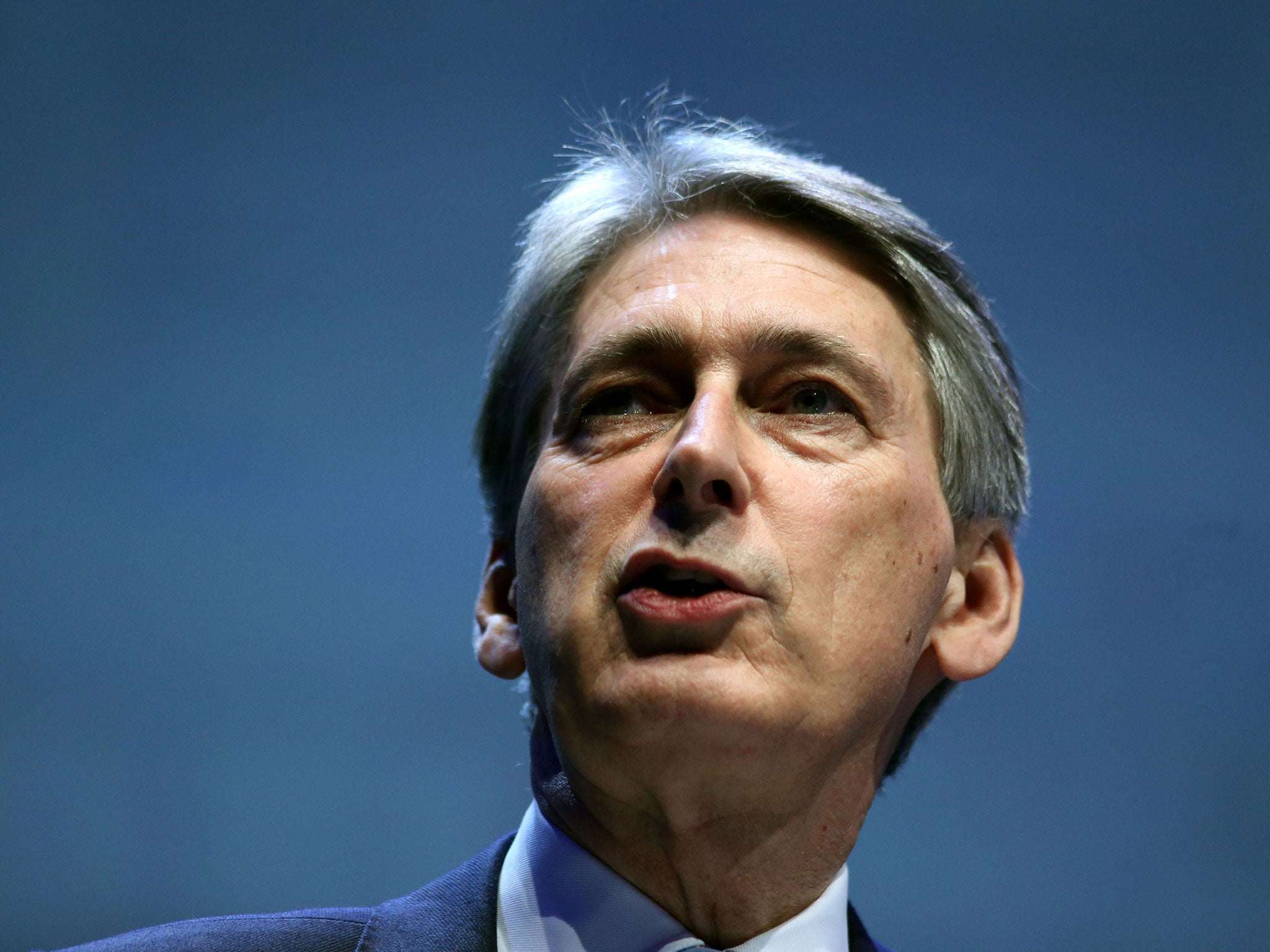Chancellor Philip Hammond accused of more 'failed austerity' after demanding extra spending cuts before the election
Government departments are told to come up with proposals for savings of up to six per cent from their day-to-day budgets in 2019-20

Ministers have been accused of continuing with “failed austerity” after revealing plans for steep extra spending cuts before the next election.
The Treasury has written to Government departments, demanding proposals for savings of both three per cent and six per cent from their day-to-day budgets in 2019-20.
It means further cuts are planned at the time when Britain is expected to leave the European Union – imposing extra burdens on the Government and risking an economic slump.
Most controversially, local authorities will be told they must find extra money to tackle the social care crisis by making further “efficiencies” – at the end of a decade of cuts.
A letter sent by David Gauke, the chief secretary to the Treasury, reads: “Efficiencies found within local government will be used to help met existing pressures on social care.”
The call for more cuts comes despite a warning from the independent Institute for Government that public services are now reaching a “tipping point”, after a decade of austerity.
Furthermore, the timing means the Conservatives will go into the 2020 general election while trying to force through further spending reductions.
Labour’s Shadow Chancellor John McDonnell said the announcement showed Chancellor Philip Hammond “represents more of the same Tory austerity”.
“Sneaking out an announcement asking departments to model cuts of three per cent and six per cent for 2019-20 is no way to manage public spending,” he said.
“Hammond urgently needs to explain why this announcement was made in the way it was and why, after seven years of failed austerity, he thinks more of the same will now work.”
The letters sent to Cabinet colleagues by Mr Gauke say up to £1bn of the savings made would be reinvested in “priority” areas, rather than used to reduce the deficit.
The NHS, foreign aid and core schools budgets - which excludes funding for 16 to 18-year-old pupils - are said to be protected and do not come under the scope of the review.
However, real-terms spending on school pupils is already on course to drop by 6.5 per cent over the course of this Parliament, according to the respected Institute for Fiscal Studies.
The Ministry of Defence has been asked to model a three per cent scenario only, in order to meet the Nato commitment to spend two per cent of GDP on defence.
Announcing the 'efficiency review', Mr Gauke wrote: “There has been progress, but there is further to go and the whole of government is working together to consider how we can live within our means while delivering maximum value for every pound of taxpayer money.”
Mr Hammond announced in November that £3.5bn of further savings would be needed in the final year of this Parliament in order to balance the books sometime in the next.
The decision to press ahead with further cuts comes despite better-than-expected tax receipts, expected to be confirmed when Mr Hammond delivers his Budget next week.
Between 2010 and 2013, the Coalition Government claimed to have found £14.3bn of savings compared with the baseline it inherited in 2009-10.
Subscribe to Independent Premium to bookmark this article
Want to bookmark your favourite articles and stories to read or reference later? Start your Independent Premium subscription today.

Join our commenting forum
Join thought-provoking conversations, follow other Independent readers and see their replies